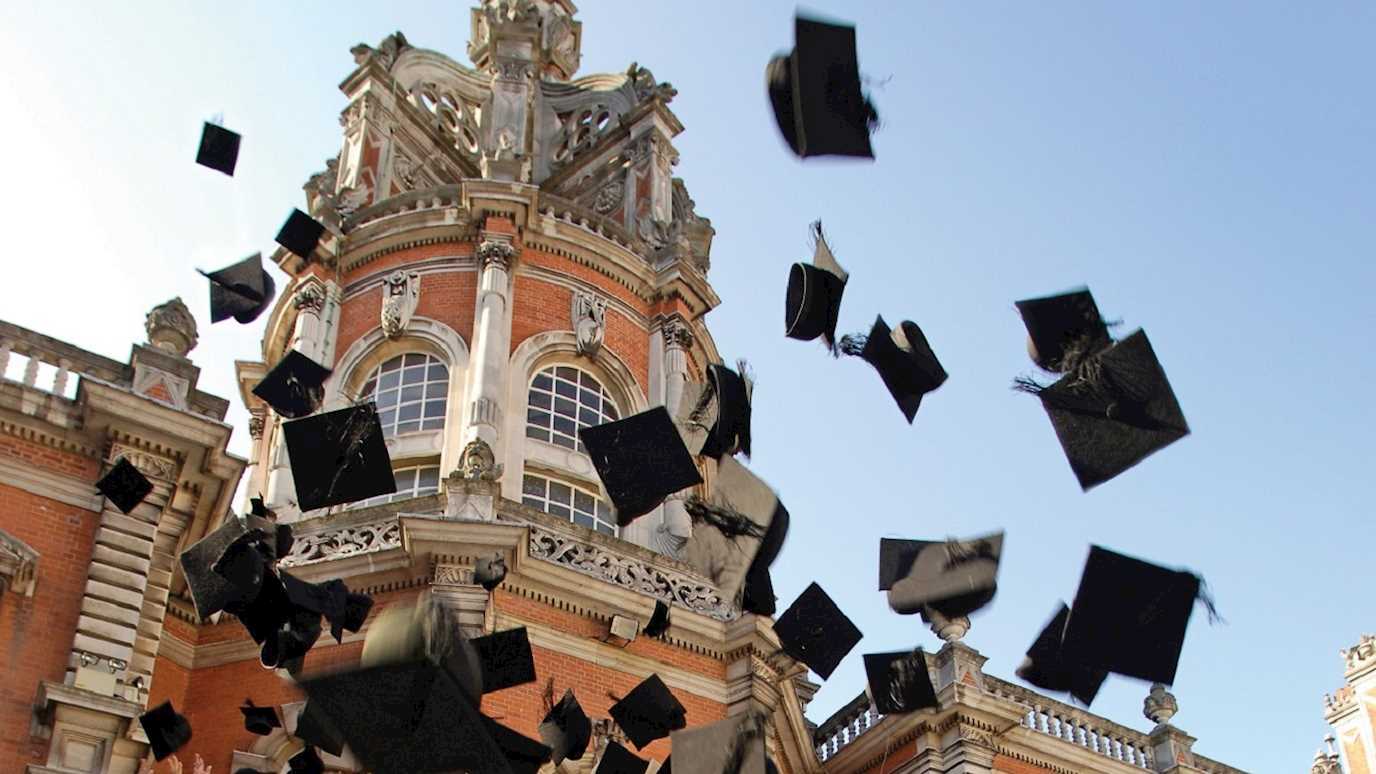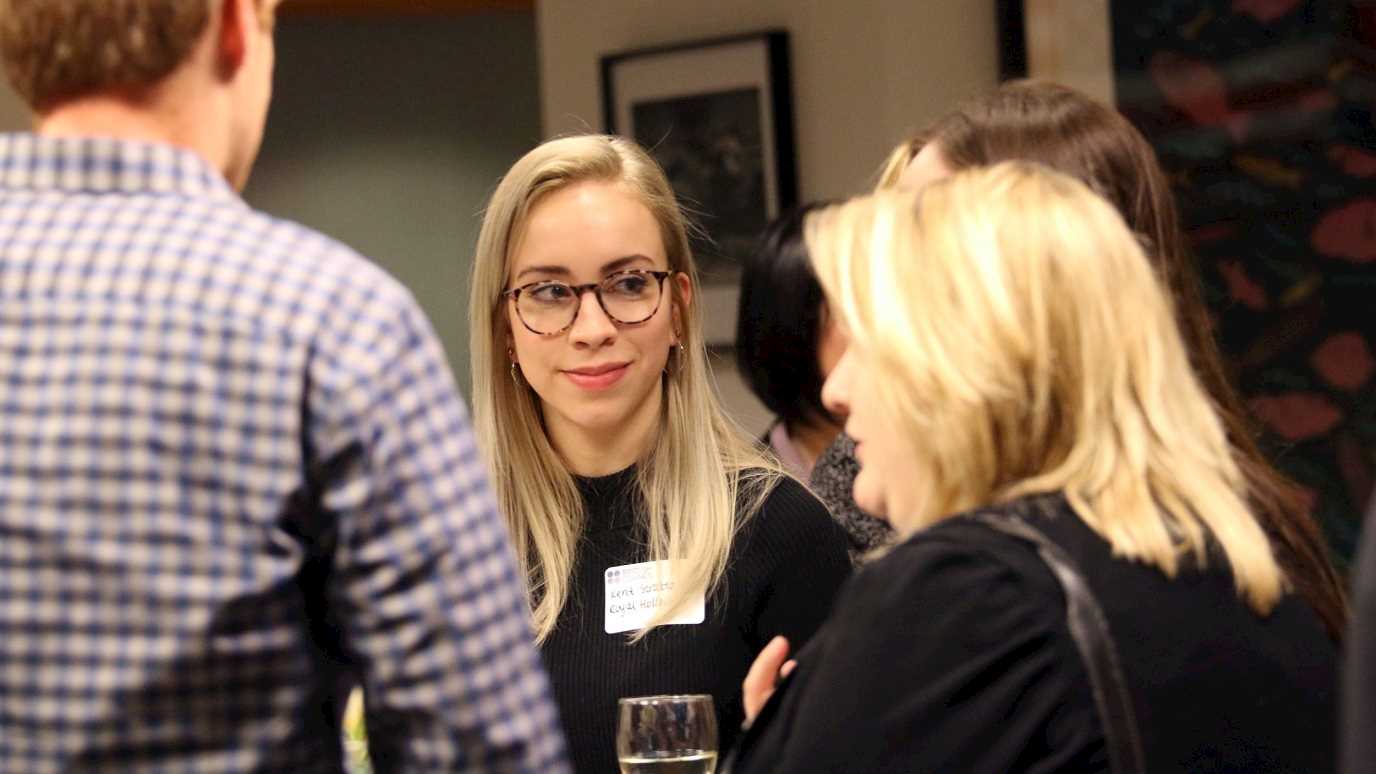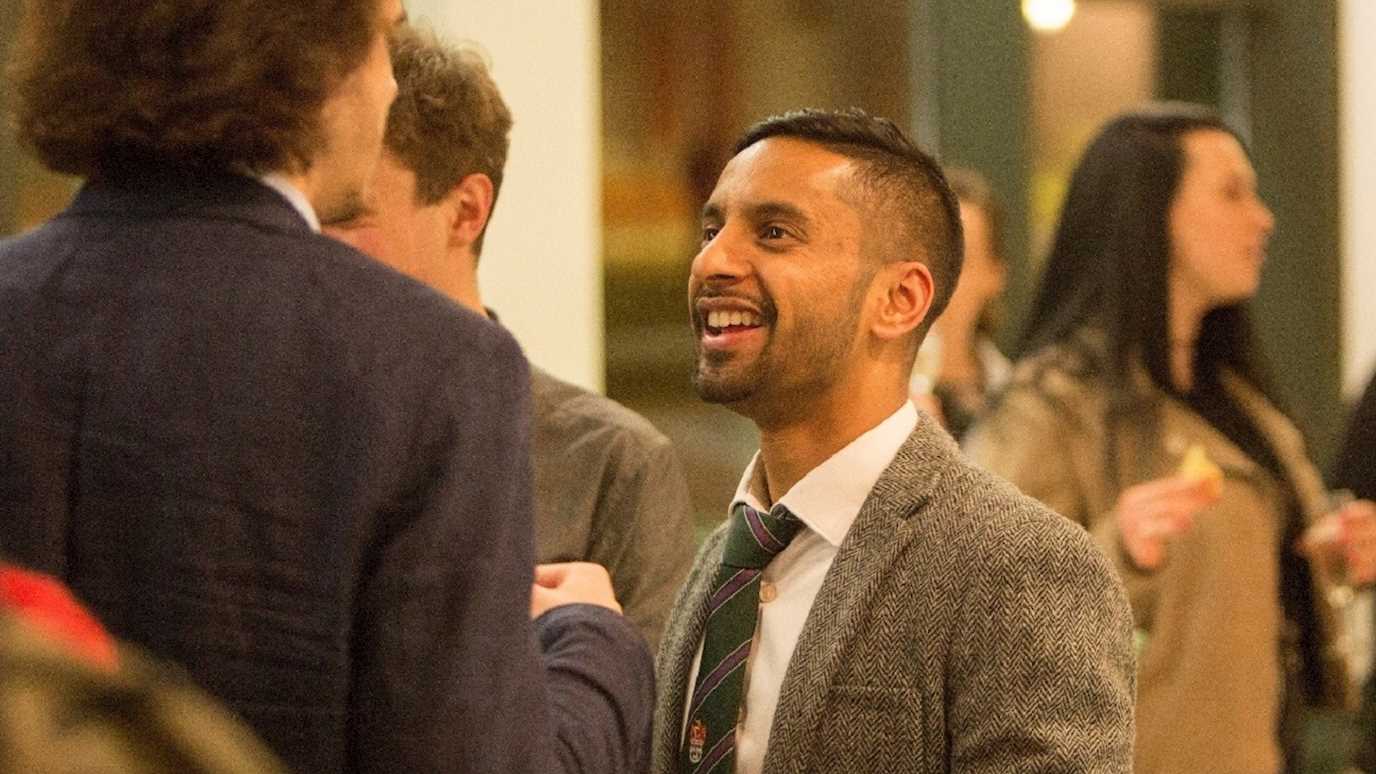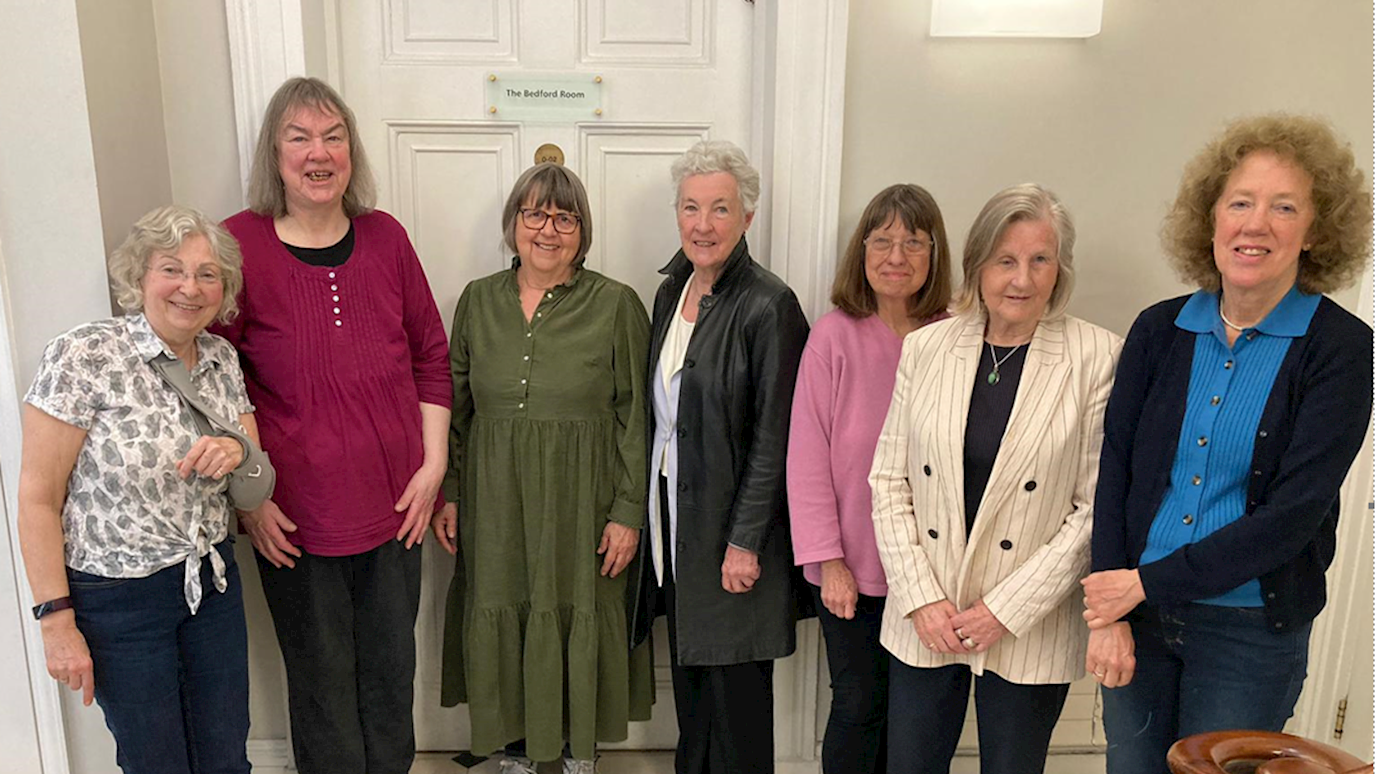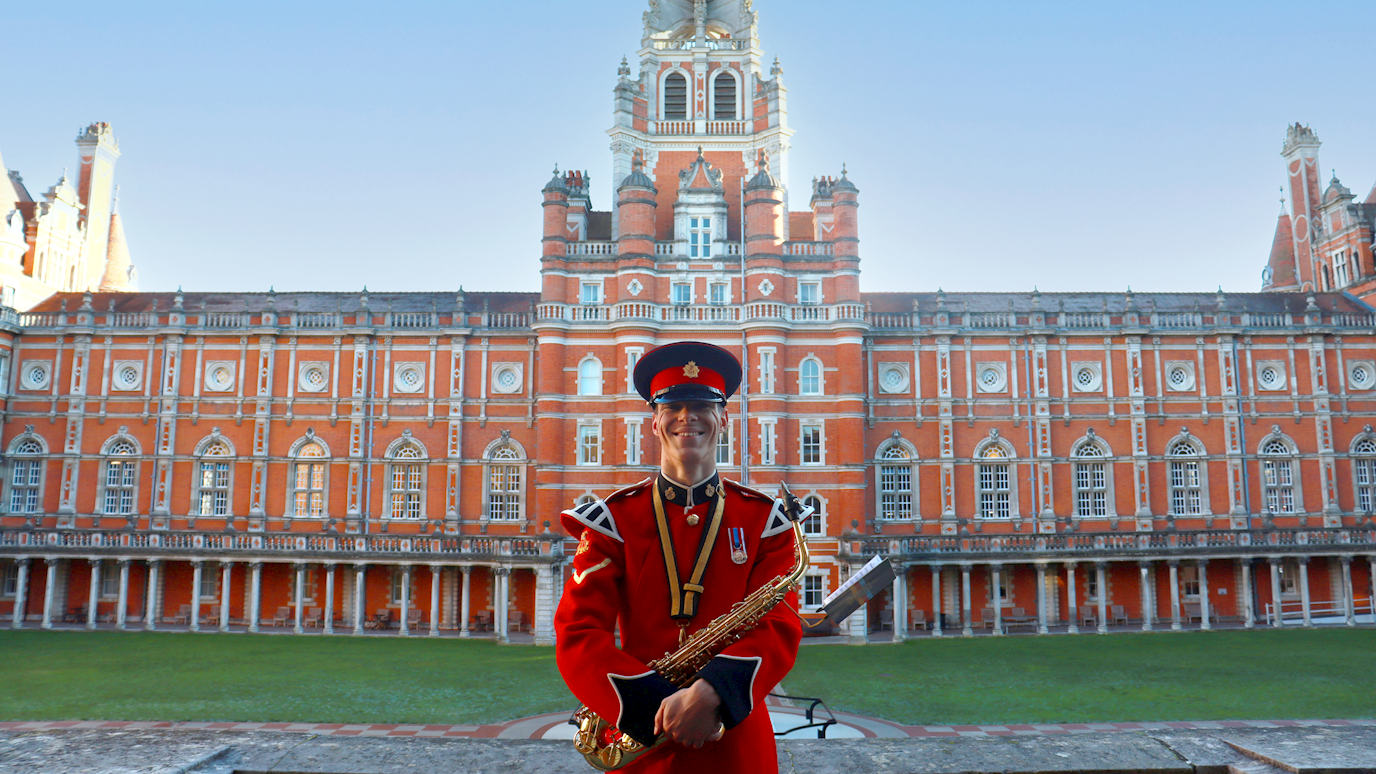Having started his career at the BBC in 1985, Chris Aldridge is today one of the most recognisable voices on Radio 4. He talks to alumna and journalist, Jessica Jonzen, about being part of a British institution and what his years at Bedford College mean to him.
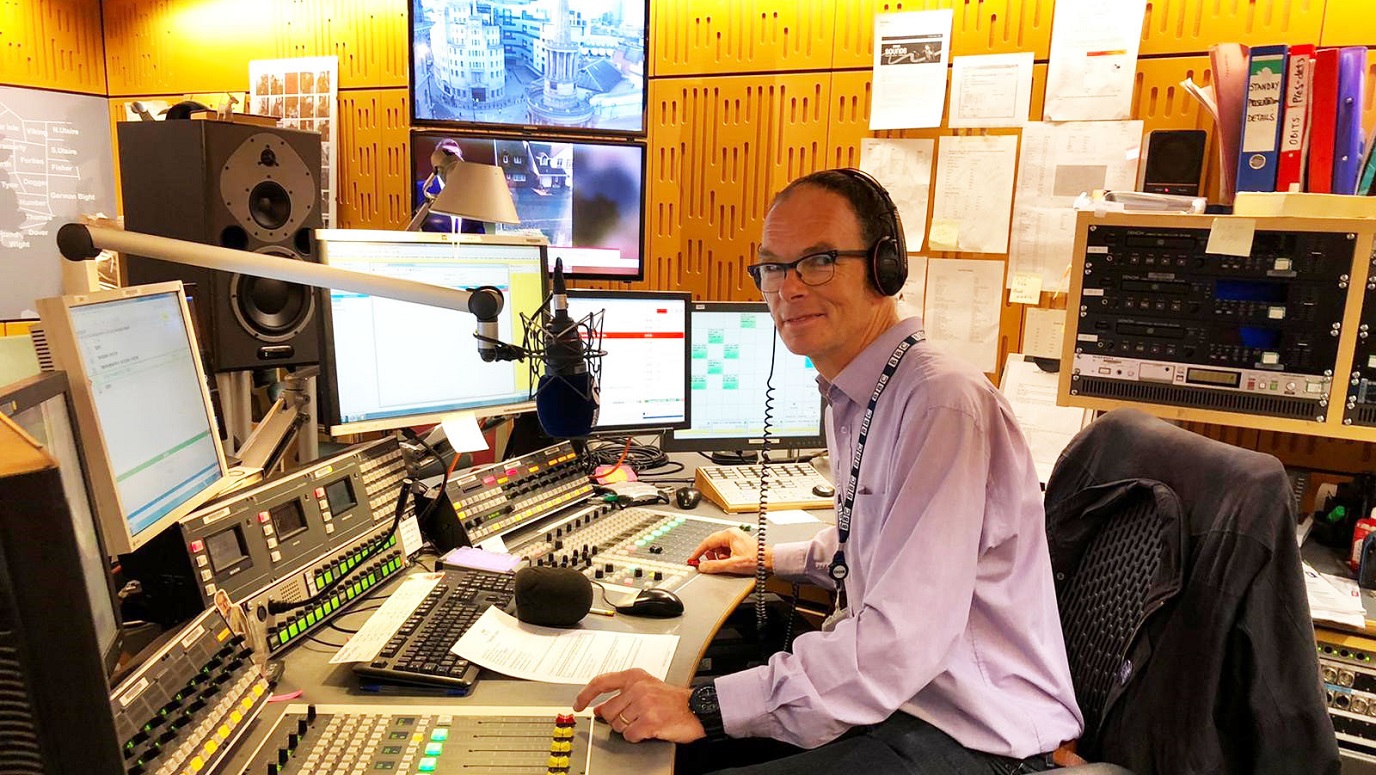
Times and social mores might change but there are a few cornerstones of British culture which seem completely immutable: putting the kettle on, eating fish and chips on a windswept beach, and Radio 4.
Since 1939 (when it was called the BBC Home Service), the BBC’s flagship national spoken-word radio station has informed, provoked, entertained and reassured the British public. Much of our sense of connection with Radio 4 can be put down to the mellifluous voices of the continuity announcers who not only provide seamless links between disparate programmes, but inform listeners of the world’s triumphs and tragedies whilst reading the news. They also keep both fishermen and insomniacs company with the inimitable Shipping Forecast.
Radio 4’s Senior Continuity Announcer and Bedford College alumnus Chris Aldridge (BSc Maths, 1985) first fell in love with radio as a child. “The radio was always on in our house and I was brought up on programmes like Just a Minute, but when my parents gave me my own transistor radio as a Christmas present at the age of 11, I fell in love with it as a personal medium. Suddenly these amazing voices from all over the world opened up to me,” he says when we meet at Broadcasting House.
Growing up in the West Sussex town of Horsham, Chris attended the local grammar school. Did he feel that a career in radio was a possibility? “I suppose I always felt that I’d like to be involved in radio in some way but probably as a hobby. Going to the grammar school that I did, a career in the media would have been a little frowned upon.”
After initially choosing to study Medicine at university, Chris quickly realised it wasn’t for him. “Because Medicine was a career that was respected and sought-after, I was probably carried along with the idea of doing that,” he says.
“I didn’t see broadcasting – certainly not at the BBC – as something that would be open to me because I’d not followed the arts in my education.”
But there was a silver lining: “I was studying in London and got involved with St Mary’s hospital radio and the station was syndicated to several other hospitals, so it was quite a big deal in hospital radio terms.” Suddenly, a career in radio no longer seemed out of the question. Chris decided that a degree in his favourite subject – Maths – would suit him better and he was accepted by Bedford College.
“The setting was a huge draw – the fact that it was in London but also in this beautiful location in Regent’s Park, and it was also close to the BBC,” says Chris. Despite his Maths degree, Chris had set his sights on a career the BBC “I thought, if I can’t get a role that’s directly related to output then I’ll try to get in through some kind of office role which could at least open me to the organisation.”
Chris’ Academic Adviser, Dr Rae, “was hugely encouraging in my efforts to apply to the BBC for a role which wasn’t a natural leap from a Maths degree,” says Chris. “I should also apologise to him for not doing better in his Mechanics module!”
Other highlights during his time at Bedford College included working in Bethlehem for a summer with a fellow student from the Christian Union, and being selected as a student representative to meet the Queen Mother when she visited Bedford as part of its closing-down ceremonies. “I remember her deliberately breaking away from our suited-and-booted official line to have a lengthy chat with one of the scruffiest students from the Philosophy department who was lurking in the crowds; she clearly knew her own mind.”
Chris’ time studying at Bedford College set him on his path, he says. “The whole atmosphere at Bedford was one of change and embracing new challenges as we merged with Royal Holloway. My own courses became relocated to other colleges in London as an interim measure and I guess it helped me take risks and believe that aiming for the BBC was not an impossible dream.”
One of Chris’ many letters to the corporation was answered by the producer of Start the Week, and he got the opportunity to watch a rehearsal and live recording of the programme. “I’ll be forever grateful to him – it was an invaluable experience,” said Chris, who also learnt a valuable lesson about radio that day: “They’d recently had Pamela Stephenson on the programme and one of the regular guests had said something pompous and she’d thrown a glass of water over him. This was shocking radio and I asked the producer how he’d coped with it. ‘Oh no,’ he said, ‘it was wonderful!’ That was my first insight into how radio can be and how creative these moments can be if you embrace them. You shouldn’t be afraid when things don’t go according to script.”
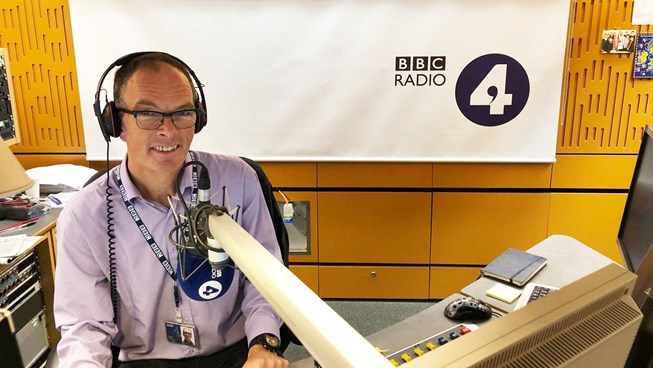
After graduating in the summer of 1985, Chris went through months of application stages before starting the year-long Studio Manager – or sound engineer – training programme in the October. “One of my early impressions of the BBC was the number of people who smoked – which was, I suspect, the way producers and presenters coped with the stress of live broadcasting, and of course you didn’t dare question having to work in a swirl of tobacco clouds,” he says.
One of Chris’ early tasks was archiving hours of Hitler’s speeches. “It was very dull – I was stuck in a small booth in the basement of Broadcasting House, wondering whether this was quite the career at the BBC that I’d imagined,” he says. “But, of course, it was a useful and early reminder of the importance of maintaining the BBC’s archives, and the service they provide to anyone researching and making programmes.”
Chris’ first appearance on a national radio programme while working as a trainee sound engineer involved him having to do an impression of a wooden leg: “I was assigned a Radio 3 drama with two more experienced colleagues called The Real Long John Silver, and it involved three characters – Paul Edington, Ian Carmichael and Anna Massey, and the premise was that they all turn up at a fancy dress party dressed as Long John Silver. So, they needed three wooden legs!” Chris’ colleagues beat him to the sound effects cupboard and found the only two crutches and so he to improvise with a broom. “So, my first appearance on BBC national radio was with a broom stuck in my armpit, hopping along the ground shadowing one of these actors – but I was the first wooden leg to be heard on the drama. I actually gathered my family around the radio to hear this going out!”
More cerebral experience followed when he joined the new Radio 5 station in 1990 as a producer on Danny Baker’s Sports Call programme. “You’d hope that as much of the script you’d carefully laboured over all week would survive, but the bits that didn’t he’d turn it into stardust,” says Chris.
Chris got the opportunity to audition as a continuity announcer during his time at Radio 5, and under the tutelage of seasoned Radio 4 announcer Clive Roslin, he gained in confidence and considered knocking on the door of Radio 4. But when Radio 5 rebranded as 5 Live four years later, Chris found himself facing redundancy as the corporation sought to replace the station production staff with seasoned journalists.
“The BBC dream nearly came crashing down,” he says. “It was awful because we had just had our first baby the year before so it was a great emotional upheaval.” In the end, Chris ended up back in his old job as a studio manager. “It was a lesson not to let work become too much of your identity. It was a salutary experience but a good one, ultimately, to never take things for granted. It also made me stand back and look at work in a different light and rebalance my priorities right at the time our children came along.”
Chris joined the Radio 4 announcer team in 1995, and became senior announcer in 2003, and during his 24 years there he has been on duty to read some of the most tragic events of recent history, including the Boxing Day tsunami, the abduction of Madeleine McCann and the Paris shootings.
“I think in those [tragic] times, you realise that you and the listener are in this together. This is going to be new to the listener – it’s new to you – and you just have to reflect that in your tone and walk them carefully through it.”
Having spent his entire career at the BBC, Chris has witnessed huge changes at the corporation, not just in terms of technology but in attitude and style, too. “The organisation itself has become a less hierarchical, more friendly and collaborative place, partly as a consequence of layers of management being reduced but also thanks to a strong drive to tackle bullying and harassment in the workplace,” he says. “When I joined there were certain presenters and producers who would throw their weight around with impunity; thankfully that is no longer the case.”
What does the BBC mean to Chris today? “It is a place of opportunity, community and extraordinary talent and creativity,” he says. “After 34 years, it’s still a privilege to walk through the doors I entered in 1985 and into an organisation that has such a bearing on British life and carries worldwide respect. Of course, like any large workplace it can have its frustrations but – even when we’re moaning about the canteen food or nightshifts – most of us know how lucky we are to work here.”










